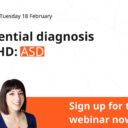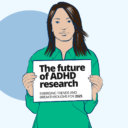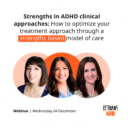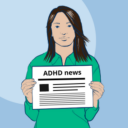The US healthcare system is shifting away from volume-driven visits and tests, and toward value-based care, also…
Blog
ADHD and comorbidities: What virtual providers need to know when diagnosing and managing
ADHD rarely exists in isolation. The prevalence of coexisting conditions such as anxiety, depression, substance use disorders…

Normative data for objective ADHD smartphone application in a general population (2025)
Clinical Practice & Epidemiology in Mental Health (Gustafsson, U., Nolen, R., Casals, N., Larsson, S., Sanyal, R. &…

Differential diagnosis of ADHD and ASD: Key insights from our webinar
In this webinar, our clinical advisors Jess Brunet (advanced nurse practitioner and non-medical prescriber in the UK) and…

Navigating prescribing restrictions: Strategies for US large healthcare networks
In the US, strict and ever-changing prescribing rules, medication shortages, and increased scrutiny on controlled substances prescribed…

How QbCheck can help scale ADHD virtual care providers
Virtual ADHD care providers are uniquely positioned to meet the growing demand for ADHD diagnosis and treatment…

The future of ADHD research: Emerging trends for 2025
2025 promises further advancements that will continue to shape ADHD diagnosis, treatment, and support for practitioners as well…

Optimize ADHD treatment approach through a strengths-based model of care: Key insights from our webinar
A strengths-based approach to ADHD care focuses on the unique capabilities of each patient – allowing you to…

Enhancing the use of data-driven ADHD care in your service
Clinics worldwide are facing growing demand for ADHD services, exposing operational bottlenecks in many clinics including long wait…

Vorteile und Herausforderungen von ADHS-Ferntests in Deutschland
Bei der Diagnose von ADHS in Deutschland muss man sich in einem umfassenden und manchmal komplexen medizinischen System…

